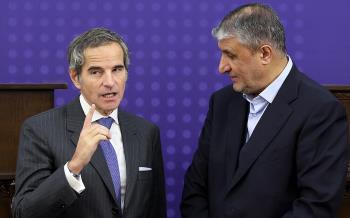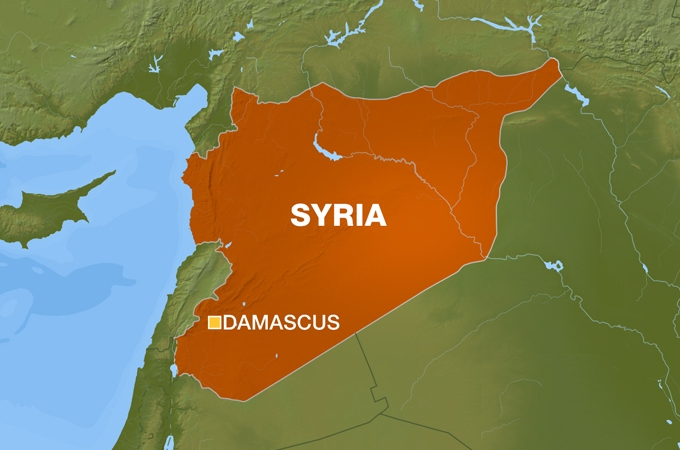Alwaght- Five years after the start of the Syrian conflict, the United States and its allies have failed dismally in their ultimate objective of overthrowing the legitimate government of President Bashar al Assad which continues to grow stronger.
Currently the US, its European and regional allies claim to be waging a counter-terrorism operation against ISIS and other terrorist groups while at the same time supporting other terrorist groups in Syria as a means to destabilizing and toppling the government in Damascus.
Over the last five years, the US strategy in Syria has suffered major setbacks forcing the Obama administration to abandon its allies while looking at a credible exit strategy.
Just like al Qaeda, ISIS Takfiri terrorist group was created and trained by the US to spread mayhem in the West Asia region and beyond and thus create pretexts for intervention by global powers in the energy rich region while protecting the Israeli regime and countering the Islamic Republic of Iran.
Syria, under President Bashar al Assad and his father Hafez al Assad, has been the base for Palestinian and Lebanese anti-Israeli resistance movements in the West Asia region. On the other hand, the US-Israeli objective in Syria has been in tandem with that of reactionary Arab regimes especially Saudi Arabia which perceives Iran as a threat.
Therefore, the war on Syria was not just to oust Assad but also weaken Israeli regime’s enemies in the axis of resistance including Iran, the Lebanon’s Hezbollah resistance movement and Palestinian resistance movements especially Hamas and Islamic Jihad.
The US, European Union and some regional states led by Saudi Arabia have spent five years in a futile attempt “regime change” in Syria. Their scheme suffered a major blow when September last year when Russia carried out its first airstrikes in Syria against foreign-backed terrorists trying to overthrow Syria’s government. The US and its allies also have an alliance supposedly fighting ISIS and other terror groups.
Julian Assange’s book, “The WikiLeaks Files: The World According to U.S. Empire, describes how the released files confirm that Washington, while publicly opposing Islamic terrorists, saw their existence as an opportunity it could use to destroy Syria. The files confirm that it was US policy to foster Shia-Sunni tension to destabilize Syria, as the U.S. did in Iraq.
At the same time U.S., Turkish, Saudi, Jordanian and the EU were developing plans for an even more intense push to dismember Syria. Those plans have been pushed back by Russia’s effective airstrikes against ISIS.
US Divergence with allies on Syria
The five year US-led alliance against President Assad is facing serious challenges of differences among key members.
Tension between Turkey and the US over Kurdish forces in Syria continue to escalate amid contradicting statements on Turkey’s recent military operation on Syrian territory. The US insists that Turkey should hit the ISIS but not Syrian Kurdish fighters, whom Ankara describes as “terrorists.” Turkish leaders seem not cognizant to the fact that the US is pursuing multiple objectives in Syria. After failing to oust Assad, Washington reckons it should use the prevailing situation to prop up separatist groups in the region to achieve its long stated objective of the so called ‘Greater Middle East’ whose core approach is balkanization of the West Asia region.
Ankara also blames the US of being involved in the July 15 failed coup meant to overthrow president Erogan. A Turkish prosecutor says that there is evidence that US, through the CIA and FBI provided training for the followers of powerful US-based Turkish cleric Fethullah Gulen, whom Ankara blames for the coup attempt earlier this month. Meanwhile, Turkey and Russia, seem to have agreed not to return to the tensions which erupted after a Russian jet was shot down by Turkey earlier this year. Of course Moscow and Ankara have deep differences apart over the future of Syria’s president, Bashar Al Assad. President Erdogan and Russian president Vladimir Putin met in St Petersburg on 9 August where they reviewed common interests in Syria.
US-Saudi ties are also experiencing fault lines in Syria despite the two countries generally being on the same side of supporting terror groups opposing the Assad government. The US claims it is more focused on fighting ISIS, whereas the Saudi regime backs groups which the US has branded as terrorist, mainly Ahrar Sham Takfiri terrorist group which is also opposed to the US backed Syrian Kurds. The Saudi-backed terrorist group also rejected the recent US-Russian backed ceasefire which entered into force on Monday, September 12.
Another key US ally in the region, Qatar, is also at odds with Washington over Syria. Qatar's emir criticized U.S. President Barack Obama's policy on Syria on Tuesday while speaking at the United Nations General Assembly. Sheikh Tamim bin Hamad al-Thani, criticized Obama's so-called "red line" on Syria. In August 2013, Obama abruptly canceled plans for U.S. air strikes that he had vowed to order if Assad's forces crossed a "red line" and used chemical weapons.
No doubt, the regimes in Qatar, Turkey and Saudi Arabia are learning the hard way that they cannot rely on Washington’s support. If leaders of these countries fail to learn from history, they will face the same fate as Saddam Hussein who, once Washington’s blue eyed boy in the region, was dumped and bumped by his previous benefactor.
Axis of Resistance Stronger
As the US-led front continues to weaken and fail in its evil objectives in Syria, the axis of resistance in the region continues to grow stronger and resolute. The only powers genuinely battling terrorism with success in the West Asia region are Syria, Iran, Iraq, Russia, and Hezbollah. The Palestinian resistance movements of Islamic Jihad and Hamas also continue to battle state sponsored Israeli terrorism. These group of countries and movements have grown stronger and while the US-led allies continue to weaken and fail in their objectives regionally especially in Syria.



























